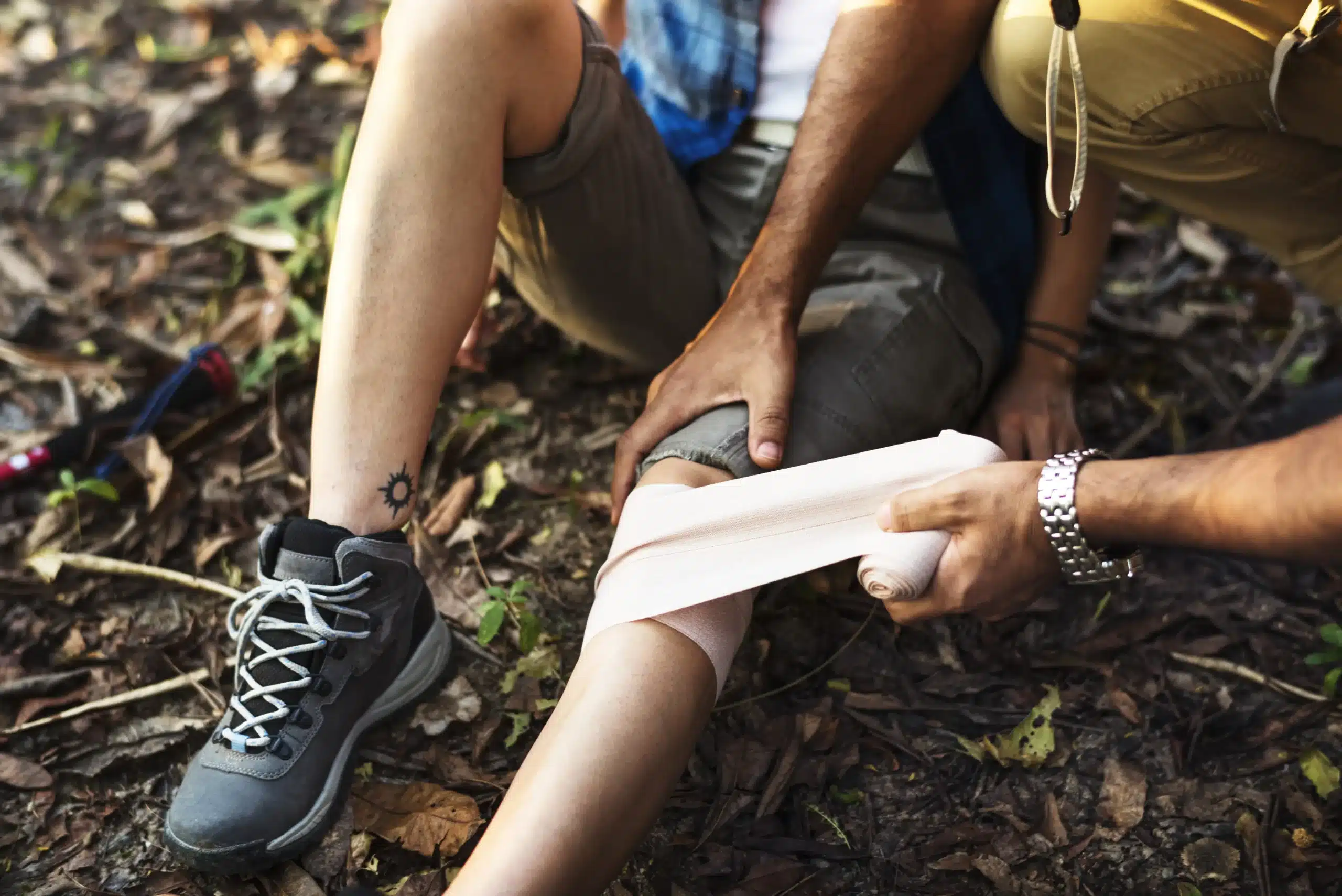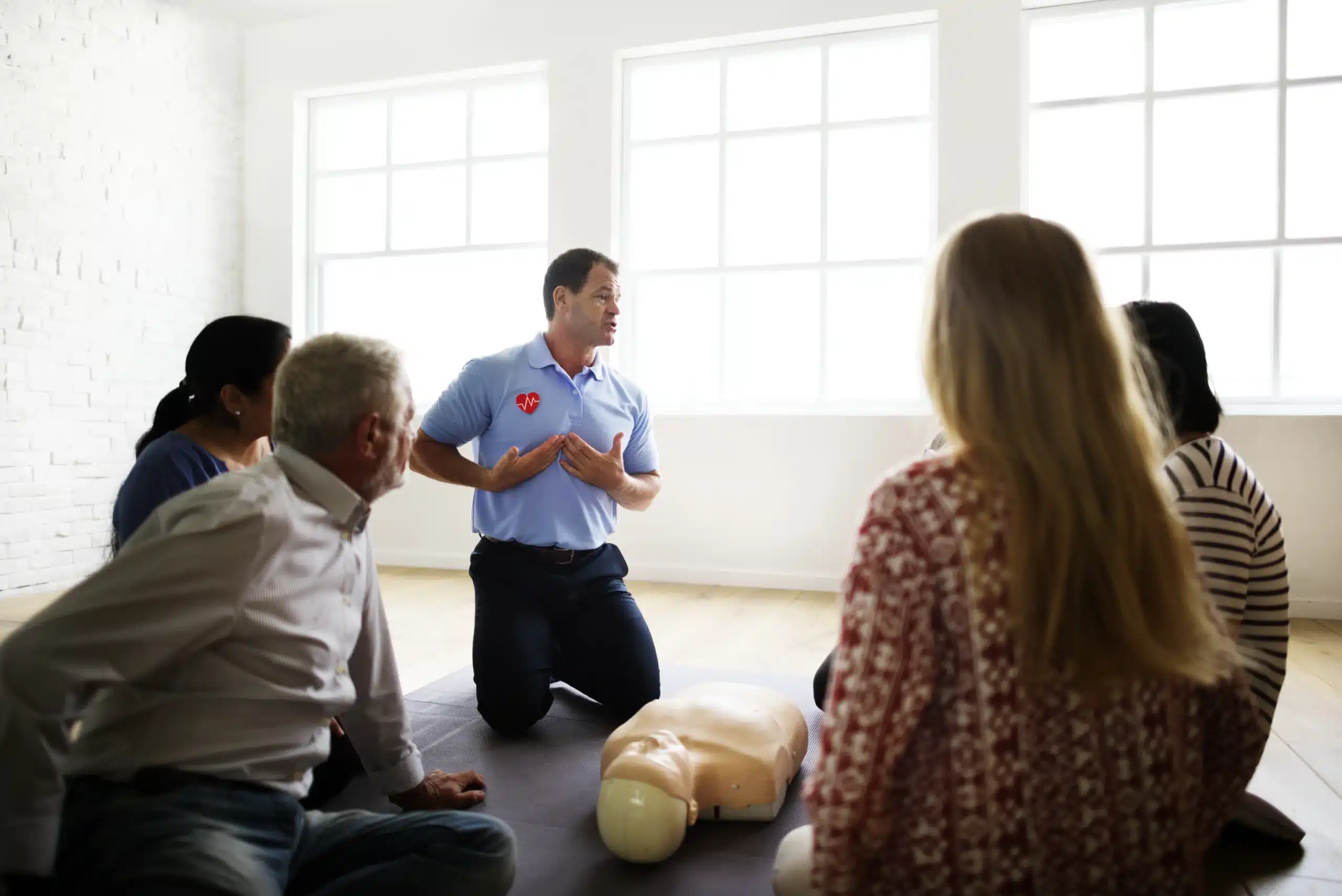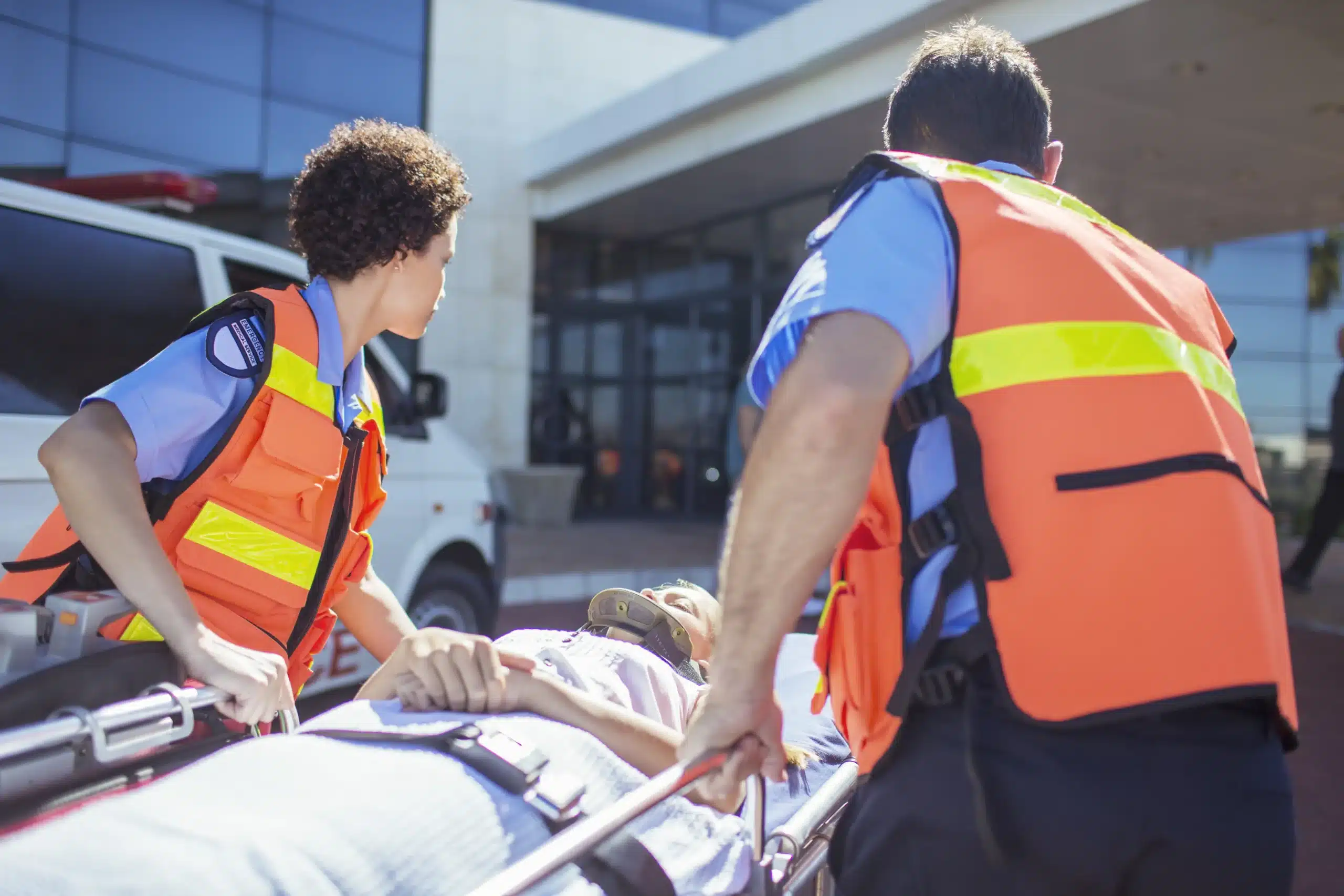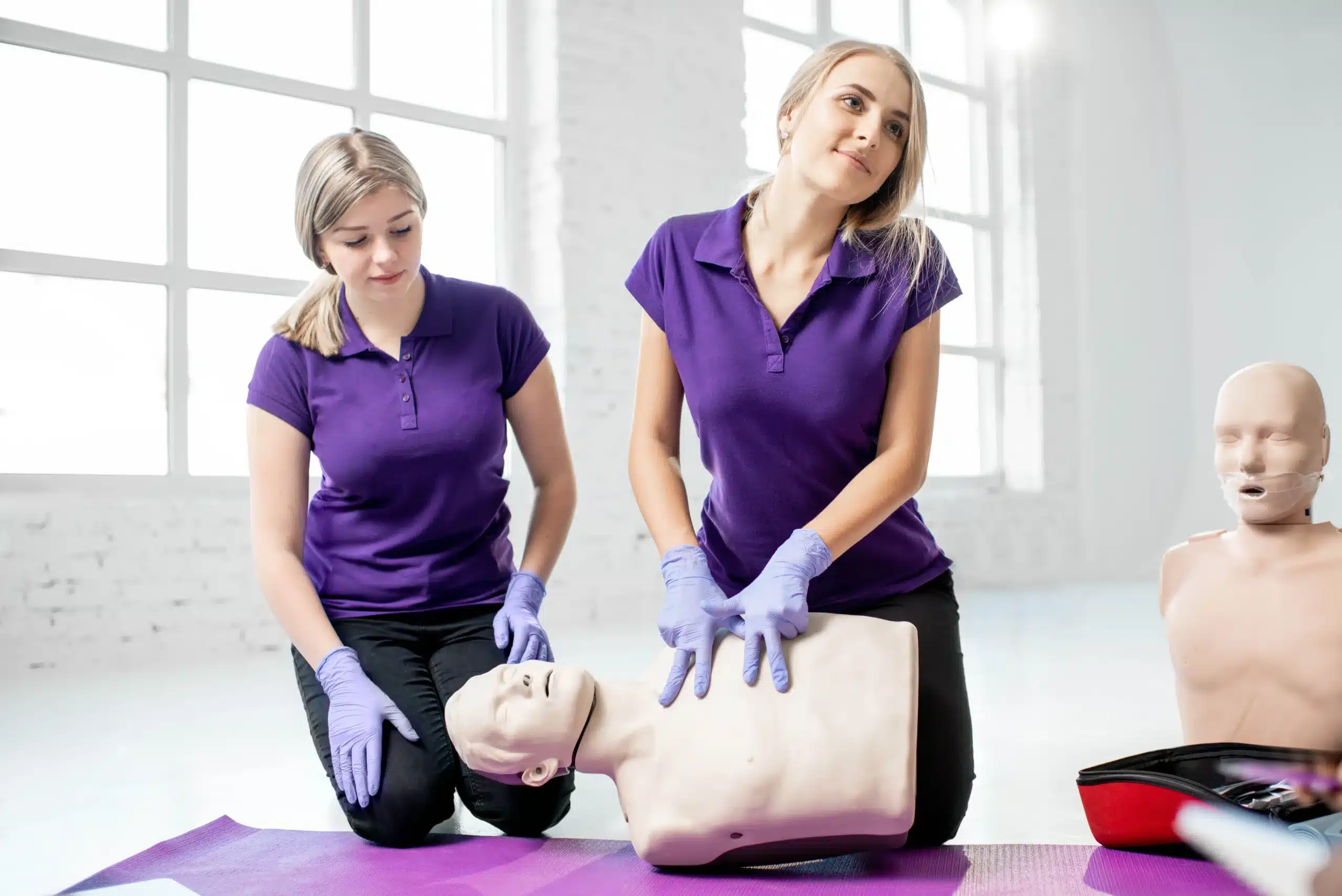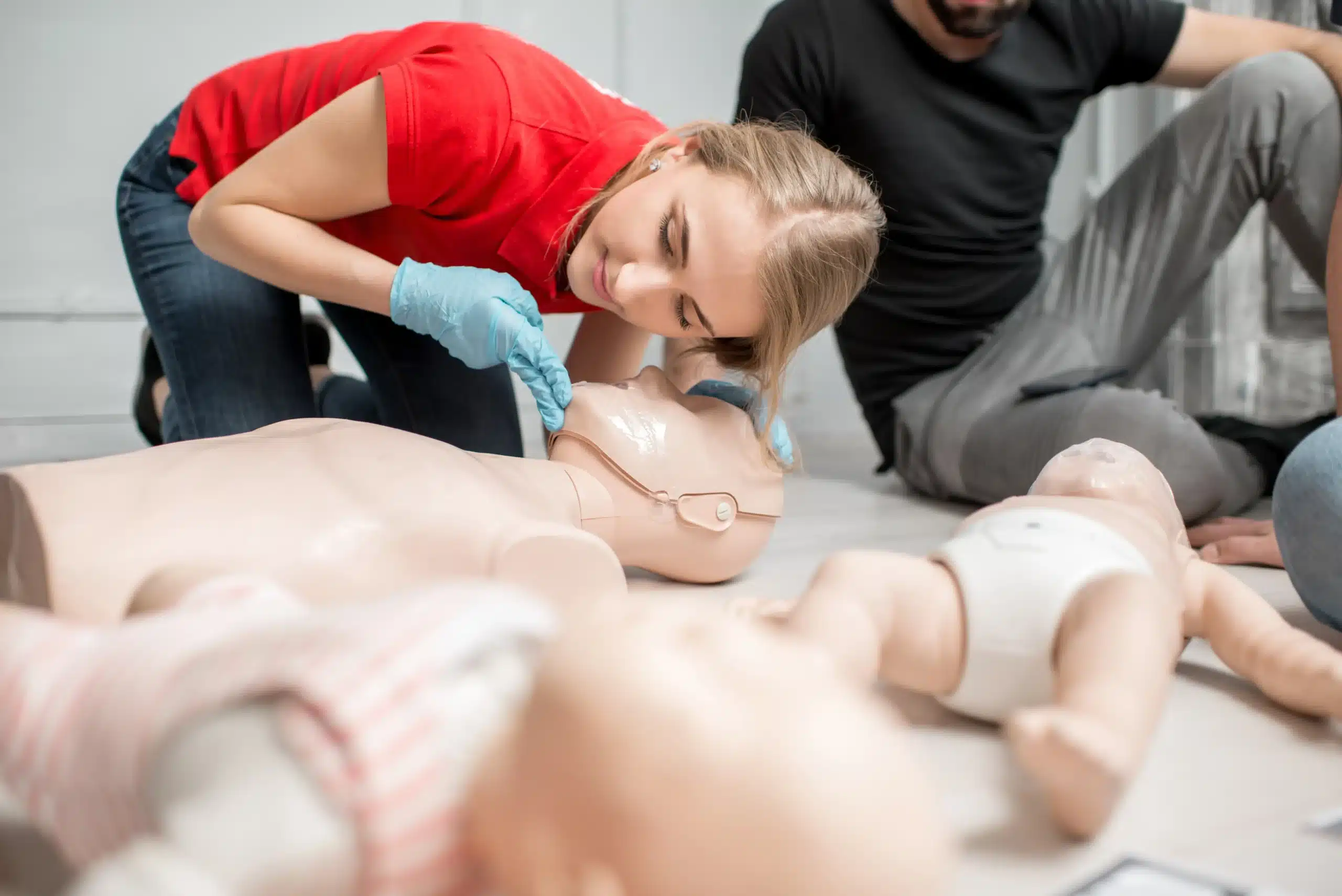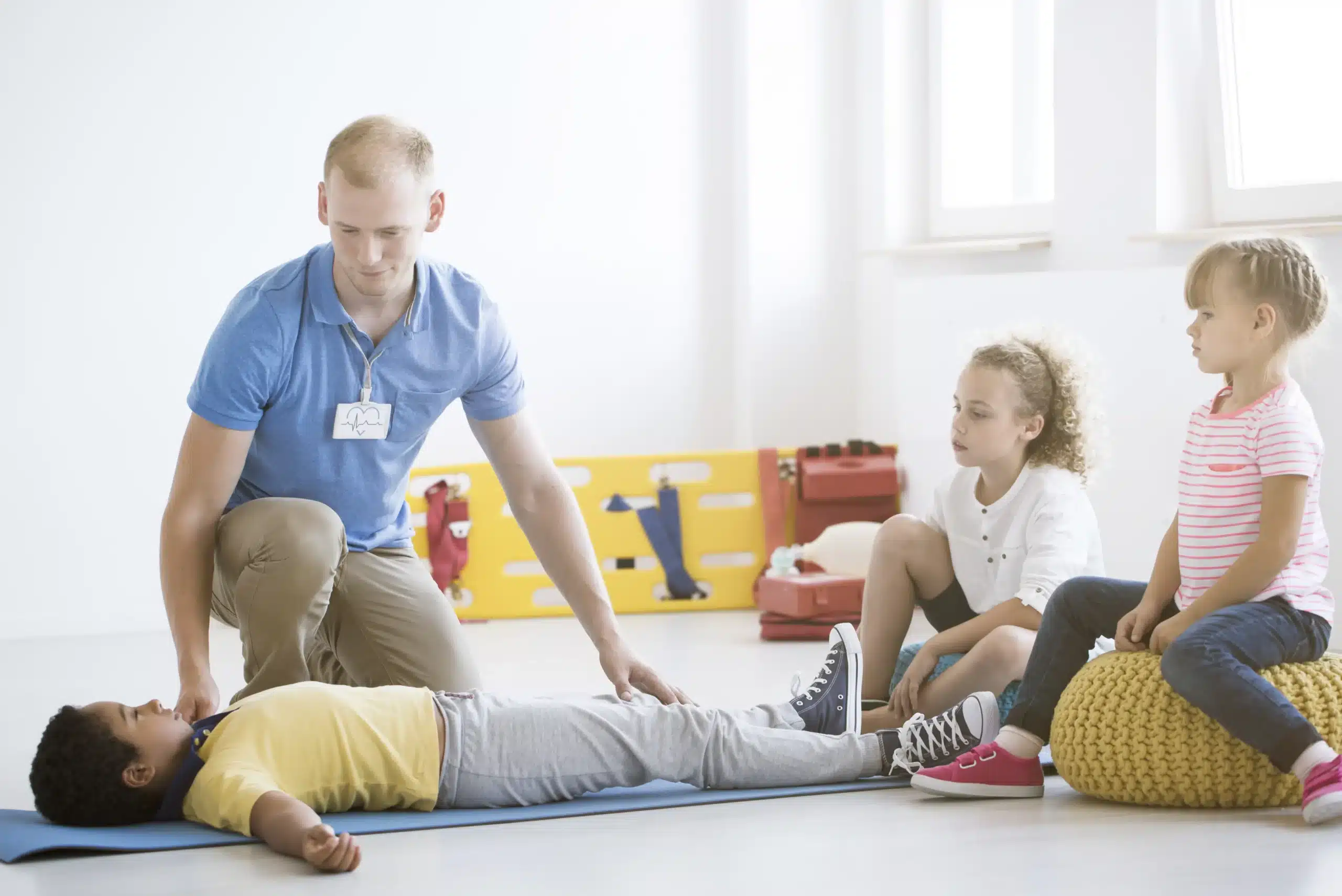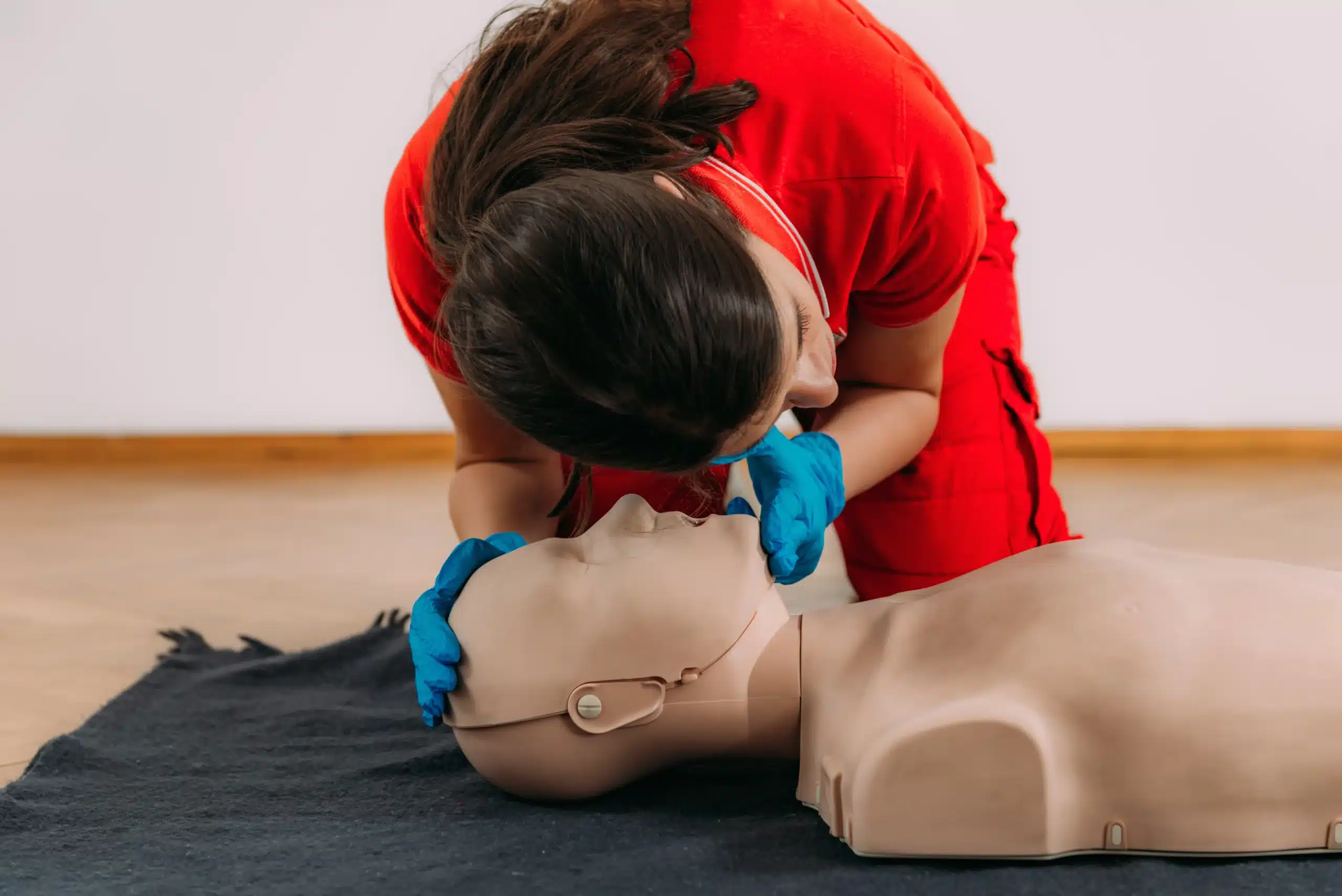Life is unpredictable, and accidents can happen, especially with children. Being prepared to respond effectively in a medical emergency can be the difference between a near miss and a tragedy. This comprehensive guide explores the critical role of pediatric CPR and first-aid training in Tracy. We’ll cover everything from the basics of CPR and first aid to the specific certifications available in Tracy and how to choose the right course for your needs. We’ll also address common questions parents and caregivers have about pediatric emergencies and discuss how training can alleviate anxieties and build confidence. Join us as we delve into the world of pediatric CPR and first-aid in Tracy and empower you to protect the children in your life.
Key Takeaways
- Pediatric CPR and first-aid training are essential, especially for those who work with or care for children. These courses equip you with the skills to handle emergencies, giving you the confidence to act quickly and effectively when it matters most.
- Finding the right course means checking certifications, course content, and instructor experience. Look for hands-on practice and convenient class times. Consider your specific needs, whether you’re a parent, teacher, or childcare provider. Safety Training Seminars offers various options, including AHA certifications and the EMSA-approved Child Care Health & Safety course, serving Stockton, Tracy, and Lodi.
- Keep your skills current through regular practice and recertification. Refresh your knowledge and techniques between certifications to maintain your confidence and preparedness for emergencies. Consider online resources, refresher courses, or practicing with friends or family.
What is Pediatric CPR and First-Aid?
Pediatric CPR and First-Aid classes teach you how to respond to medical emergencies involving infants and children. These courses cover life-saving techniques like CPR, using an AED (Automated External Defibrillator), and essential first-aid procedures. You’ll learn to manage a variety of illnesses and injuries that can affect young children, giving you the skills to act during those critical first few minutes before professional help arrives. The American Heart Association’s Heartsaver Pediatric First Aid CPR AED course provides training specifically designed for these situations. It’s a valuable resource for parents, caregivers, teachers, and anyone who regularly interacts with children. Comprehensive first aid training helps parents and caregivers respond confidently and calmly in emergencies, which benefits both the child and the entire family. Knowing you can handle a crisis makes all the difference. Pediatric first aid covers a wide range of situations, preparing you to act quickly and effectively when it matters most.
Find Pediatric CPR & First-Aid Courses in Tracy
Finding the right pediatric CPR and first-aid course in Tracy is crucial for parents, caregivers, and professionals working with children. Knowing how to respond to emergencies can make all the difference. This section helps you understand what’s available and why these skills are so important.
Available Course Types
Several organizations offer pediatric CPR and first-aid training in and around Tracy. You’ll find options for various certifications, including those from the American Heart Association (AHA) and courses meeting the Emergency Medical Services Authority (EMSA) requirements for childcare providers in California. Safety Training Seminars, for example, offers AHA-certified classes in CPR, BLS, ACLS, PALS, and First Aid, serving Tracy, Stockton, and Lodi. They also offer EMSA-approved Child Care Health & Safety training, covering pediatric first aid and CPR/AED for infants, children, and adults. For those seeking the best value, they also provide a low price guarantee. Other providers, like Life First Training Center, offer specialized courses like the Heartsaver Pediatric First Aid and CPR/AED class, designed for those working with children or involved in foster or adoptive parenting. Be sure to check with individual providers for their specific course offerings and schedules.
Essential Pediatric Emergency Response Skills
Learning pediatric CPR and first aid equips you with the skills to handle a range of emergencies, from choking and breathing difficulties to injuries and allergic reactions. Knowing how to perform infant and child CPR is a vital skill for any parent or caregiver. Resources like Kidsville Pediatrics emphasize that pediatricians often recommend parents learn infant CPR for emergency preparedness. These courses teach you how to recognize the signs of distress in children, provide appropriate first aid, and perform CPR if necessary. They also cover essential topics like using an AED and responding to common childhood emergencies. Gaining these skills not only prepares you for emergencies but also provides peace of mind knowing you can act quickly and confidently if a situation arises. For those working in childcare, a certification like the EMSA Child Care Health & Safety often includes comprehensive training in pediatric first aid, CPR, and AED use, ensuring you meet the requirements for working with children in California. This training covers age-specific techniques for infants, children, and adults, giving you a well-rounded skill set to handle various emergency scenarios.
Certification Options & Requirements
Knowing which certifications are available and required can help you choose the right pediatric CPR and first-aid class. This section clarifies what to look for based on your specific needs.
AHA Certifications
The American Heart Association (AHA) offers certifications that are widely recognized and accepted. These certifications are valuable for healthcare providers, but anyone can take these courses. AHA courses, such as Basic Life Support (BLS), Advanced Cardiovascular Life Support (ACLS), and Pediatric Advanced Life Support (PALS), are taught by certified instructors and adhere to the latest AHA guidelines. Students who successfully complete the course receive an official AHA certification card, valid for two years. These classes teach essential skills for responding to various emergencies, from basic CPR to more complex situations.
EMSA Requirements for Childcare Providers
In California, childcare providers must meet specific training requirements mandated by the Emergency Medical Services Authority (EMSA). These regulations ensure that individuals caring for children have the skills to handle medical emergencies. The EMSA-approved Child Care Health and Safety course covers pediatric CPR and first aid, meeting the state’s requirements for childcare providers. California requires in-person training for EMSA certification; online-only courses are not accepted. This hands-on training gives providers practical experience and confidence.
Age Requirements & Prerequisites
Pediatric CPR and first-aid courses are designed for a broad audience, including parents, babysitters, family members, teachers, and anyone working with children. There are typically no specific age requirements or prerequisites. The Heartsaver Pediatric First Aid CPR AED training from the AHA, for example, is suitable for anyone responsible for responding to childhood illnesses and injuries until professional help arrives. This accessibility makes it easy for anyone interested in learning these life-saving skills to enroll.
Cost of Pediatric CPR & First-Aid Training
Average Tracy Course Prices
Pediatric CPR and First-Aid training in Tracy, CA, typically costs between $75 and $125. This usually covers instruction and materials. For example, First Lady Permanente offers a combined Pediatric CPR/First Aid class for $125. Prices can vary depending on the provider and whether you choose combined or separate certifications. Check with specific providers, like Safety Training Seminars, for current pricing. For group discounts or onsite training, contact the provider directly, as these options can influence the total cost.
Additional Costs & Potential Discounts
While the course fee covers the core training, consider potential additional costs. Some providers require a separate manual or pocket mask, while others include these in the initial fee. Confirm what’s included with your chosen provider. Look for potential discounts. Safety Training Seminars offers a low-price guarantee, ensuring affordable training. You might also find discounts for groups, students, or returning customers. Inquire about cost savings when you register. Remember that your certification is usually valid for two years. Factor in recertification costs to maintain your skills and credentials.
What Happens in a Pediatric CPR & First-Aid Course?
Knowing what to expect can help you feel more prepared and confident going into a pediatric CPR and first-aid class. Here’s a glimpse at what you’ll experience:
Course Length & Format
Pediatric CPR and first-aid courses are typically eight hours long and held in a classroom setting. This format promotes interactive learning and gives you ample opportunity to ask questions. You’ll learn how to manage a range of childhood illnesses and injuries in those crucial first few minutes before professional medical help arrives. The American Heart Association offers more information on their Heartsaver® Pediatric First Aid CPR AED Training.
Hands-on Practice
A major part of any pediatric CPR and first-aid course is hands-on practice. You’ll have the chance to apply what you learn in a practical environment, building both your skills and your confidence. These interactive scenarios simulate real-life emergencies, better preparing you to respond effectively under pressure. This focus on practical training is discussed further in this overview of Heartsaver class duration.
Assessment & Certification
After successfully completing the course, you’ll receive a Heartsaver Pediatric First Aid CPR AED Course Completion Card, valid for two years. This certification demonstrates that you’ve met all the requirements, including demonstrating both theoretical knowledge and practical skills. The rigorous design of these courses ensures participants are well-prepared to handle pediatric emergencies. For a deeper look into instructor training, you can explore this evaluation of pediatric life support instructor courses.
Choose the Right Pediatric CPR & First-Aid Course in Tracy
Finding the right Pediatric CPR and First-Aid class in Tracy takes a little research. It’s a crucial decision, so consider what best equips you to handle emergencies involving children.
Course Selection Factors
Think about these key factors when comparing courses:
- Certification Body: Recognized certifications come from organizations like the American Heart Association (AHA). Ensure the course offers a certification accepted by your employer or licensing board, if applicable. Safety Training Seminars offers AHA-certified courses.
- Course Content: Does the course cover infant, child, and adult CPR and First-Aid for common childhood injuries? A comprehensive course provides the skills to handle various situations. Our EMSA Child Care Health & Safety course is a great example.
- In-Person Training: Hands-on practice is essential for CPR and First-Aid skills. Verify the course includes in-person training with certified instructors, especially important for California childcare providers.
- Location and Schedule: Choose a convenient location and schedule. Safety Training Seminars offers courses in Stockton, serving Tracy and Lodi, with flexible scheduling. Check our website for upcoming courses.
- Cost: CPR and First-Aid training is an investment. Compare pricing, but don’t let it be the only factor. We offer a low price guarantee in San Joaquin County.
Questions for Training Providers
Ask potential training providers these questions:
- Instructor Credentials: What are the instructors’ certifications and experience? Are they active in the healthcare field? Experienced, certified instructors significantly impact training quality.
- Class Size: Smaller classes allow for more personalized instruction. Ask about the student-to-instructor ratio.
- Equipment and Materials: What equipment and materials are used? Hands-on practice with realistic mannequins is essential.
- Course Renewal Policy: How does recertification work? Knowing the process and costs helps you plan.
- Reviews and Testimonials: What do other students say? Reviews offer valuable insights. You can often find reviews for training centers on Google. (Add a direct link to your Google Business Profile, if available, instead of the generic Google link.)
Local Pediatric CPR & First-Aid Training Providers
Finding the right training provider is key to a positive and effective learning experience. Here are a few options for Pediatric CPR and First-Aid training in and around Tracy:
Safety Training Seminars
Safety Training Seminars offers various American Heart Association courses, including CPR, BLS, ACLS, and PALS, tailored for pediatric care. This training equips caregivers with the skills to respond to emergencies involving children. Located in nearby Stockton, they serve the Tracy area and offer a convenient option for local residents. Learn more about their Pediatric Advanced Life Support (PALS) certification.
Tracy CPR Classes
Tracy CPR Classes provides comprehensive training in CPR, BLS, ACLS, PALS, and First Aid. With daily courses led by expert instructors, participants receive high-quality education and hands-on practice. This training is vital for anyone working with children, preparing them to handle emergencies confidently. Explore Tracy CPR classes to find one that fits your schedule.
First Lady Permanente
While not directly in Tracy, First Lady Permanente offers EMSA-approved CPR and First Aid classes designed for childcare providers in the broader region, including Stockton, Modesto, Turlock, and Merced. These classes help daycare providers maintain their required certifications and ensure they have the training to care for children safely. Find an EMSA-approved childcare CPR and First Aid class near you.
Life First Training Center
Life First Training Center focuses on Pediatric First Aid and CPR/AED training. Their courses are designed for professionals working with children, such as daycare providers, preschool teachers, and foster parents. This specialized training addresses the specific needs of children in emergencies. See if their Pediatric First Aid CPR/AED course is right for you.
Instructor Qualifications & Course Quality
Knowing your instructor’s background can give you confidence in their ability to teach these lifesaving skills. It also helps to understand how instructors maintain and update their knowledge.
Instructor Certification & Experience
Instructor certifications for CPR and first-aid often come from nationally recognized organizations like the American Heart Association or the American Red Cross. These organizations have established standards to ensure instructors possess the necessary knowledge and skills. For example, the National Safety Council offers an online orientation course for instructors already certified in other programs, allowing experienced professionals to teach First Aid/CPR/AED courses. This approach broadens the pool of qualified instructors and makes these essential courses more accessible. High-quality instruction leads to confident students. A study published by the NCBI showed students rating various aspects of their pediatric life support courses—including instructors—with high levels of satisfaction.
Ongoing Trainer Education
The best instructors commit to continuous learning. Emergency medical care is a constantly evolving field, with updates to guidelines and best practices. The same NCBI study highlighted the importance of ongoing training for instructors in each practice session of a pediatric CPR course. This dedication ensures they stay up-to-date with the latest techniques. Instructors also play a vital role in maintaining a safe learning environment, including awareness of health precautions and guidelines to prevent the transmission of infectious diseases. This commitment to safety benefits everyone.
Address Parent & Caregiver Concerns
As a parent or caregiver, the safety and well-being of the children in your care is your top priority. It’s natural to feel apprehensive about facing a pediatric emergency. Knowing how to respond effectively can make all the difference. This section addresses common worries and highlights how training can equip you with the skills and confidence to handle such situations.
Common Pediatric Emergency Worries
Many parents and caregivers share similar concerns regarding pediatric emergencies. It’s understandable to wonder if you’d truly know what to do if a child in your care began choking, experienced a sudden allergic reaction, or suffered a serious injury. Learning CPR and first aid offers essential preparedness for your family. While formal training may not be required, it’s a valuable investment. First Response Safety Training emphasizes this, highlighting the importance of parents learning these skills. Plus, studies show that parents with first aid training are typically more confident and less likely to panic during emergencies. This peace of mind is priceless. However, even with prior training, staying current is key. Research suggests that many parents, even those who’ve had CPR training, might not recall current guidelines for child CPR. This research reinforces the need for parents to refresh their CPR knowledge regularly.
Build Confidence & Competence Through Training
First aid and CPR training empowers you to handle pediatric emergencies with confidence. These courses teach essential lifesaving skills, enabling you to recognize and respond effectively to various situations, from minor injuries to life-threatening events. Solid education in pediatric first aid provides a crucial safety net, giving you the tools to act quickly and appropriately if an accident occurs. Beyond the practical skills, enrolling in a CPR and first aid class offers a chance to connect with other parents and caregivers. This shared learning experience creates a supportive network of individuals dedicated to child safety.
Maintain Your Pediatric CPR & First-Aid Skills
Knowing how to respond to a medical emergency involving a child can be incredibly empowering. But like any skill, pediatric CPR and first-aid techniques require upkeep to stay sharp. This section covers how to maintain your skills so you can remain confident in your ability to help when it matters most.
Recertification Requirements
Certification demonstrates a commitment to maintaining current, evidence-based practices. Most Pediatric First Aid, CPR, and AED certifications, like those from the American Heart Association, are valid for two years. This timeframe ensures that providers stay up-to-date with any changes in guidelines and recommendations. Mark your recertification date on your calendar as soon as you complete your initial CPR training. Many training centers, including Safety Training Seminars, offer convenient recertification courses to help you seamlessly renew your credentials. This allows you to continue providing care with the most current knowledge and techniques.
Ongoing Practice & Refresher Options
While recertification is essential, regular practice between certification cycles is key to maintaining proficiency. Consider these options to keep your skills fresh:
- Personal Practice: Use training manikins at home to rehearse techniques. Even practicing chest compressions and rescue breaths on a pillow can help maintain muscle memory and coordination.
- Group Refresher Sessions: Organize informal practice sessions with friends or colleagues who are also certified. This provides a supportive environment to review skills and address any questions. You can also find online CPR resources and videos to guide your practice.
- Online Resources: Numerous online resources, including videos and interactive modules, offer refreshers on pediatric CPR and first-aid techniques. These can serve as valuable reminders and reinforce best practices.
- Short Review Courses: Some training providers offer abbreviated refresher courses that don’t involve full recertification but provide a focused review of key skills. These can be a great way to brush up on techniques and address any areas where you feel less confident. Check with local providers like Safety Training Seminars for available options.
By actively maintaining your skills, you ensure you’re always prepared to provide the best possible care in a pediatric emergency. Regular practice and timely recertification build confidence and empower you to act quickly and effectively when a child’s safety depends on it.
Related Articles
- Pediatric CPR & First Aid Training in Stockton – Stockton CPR Classes
- Online CPR Classes in Lodi: Your Complete Guide – Stockton CPR Classes
- First Aid Courses in San Joaquin County: A Complete Guide – Stockton CPR Classes
- EMSA Child Care Health & Safety – Stockton CPR Classes
- CPR Certification in Stockton: A Comprehensive Guide
Frequently Asked Questions
Why should I learn pediatric CPR and first aid?
Knowing pediatric CPR and first aid can be life-saving. It equips you to respond effectively to emergencies involving infants and children, potentially making a critical difference before professional help arrives. Whether you’re a parent, caregiver, teacher, or simply someone who spends time around children, having these skills provides invaluable peace of mind.
What’s the difference between CPR and first aid?
CPR, or cardiopulmonary resuscitation, focuses on restoring breathing and circulation in someone who has stopped breathing or has no pulse. First aid encompasses a broader range of responses to medical emergencies, from treating minor injuries like cuts and burns to managing more serious situations like choking or allergic reactions. Often, both skills are taught together, providing a comprehensive approach to emergency care.
Where can I find pediatric CPR and first-aid classes near Tracy?
Several organizations offer these courses in and around Tracy. Safety Training Seminars, for example, provides various American Heart Association certifications, including CPR, BLS, ACLS, PALS, and first aid. They serve Tracy, Stockton, and Lodi. Other providers like Tracy CPR Classes and Life First Training Center also offer pediatric-focused courses. Checking online or contacting local community centers can help you find additional options.
How much do these courses typically cost?
Prices generally range from $75 to $125, depending on the provider and the specific certifications included. Some providers offer discounts for groups or returning students. It’s always a good idea to contact the provider directly to get the most up-to-date pricing information and inquire about any available discounts.
How long is a pediatric CPR and first-aid certification valid, and how do I renew it?
Most certifications are valid for two years. Recertification involves taking another course to refresh your skills and ensure you’re up-to-date with the latest guidelines. Many training centers offer recertification courses, making it easy to maintain your credentials. Contact your original training provider or check online for recertification options near you.
